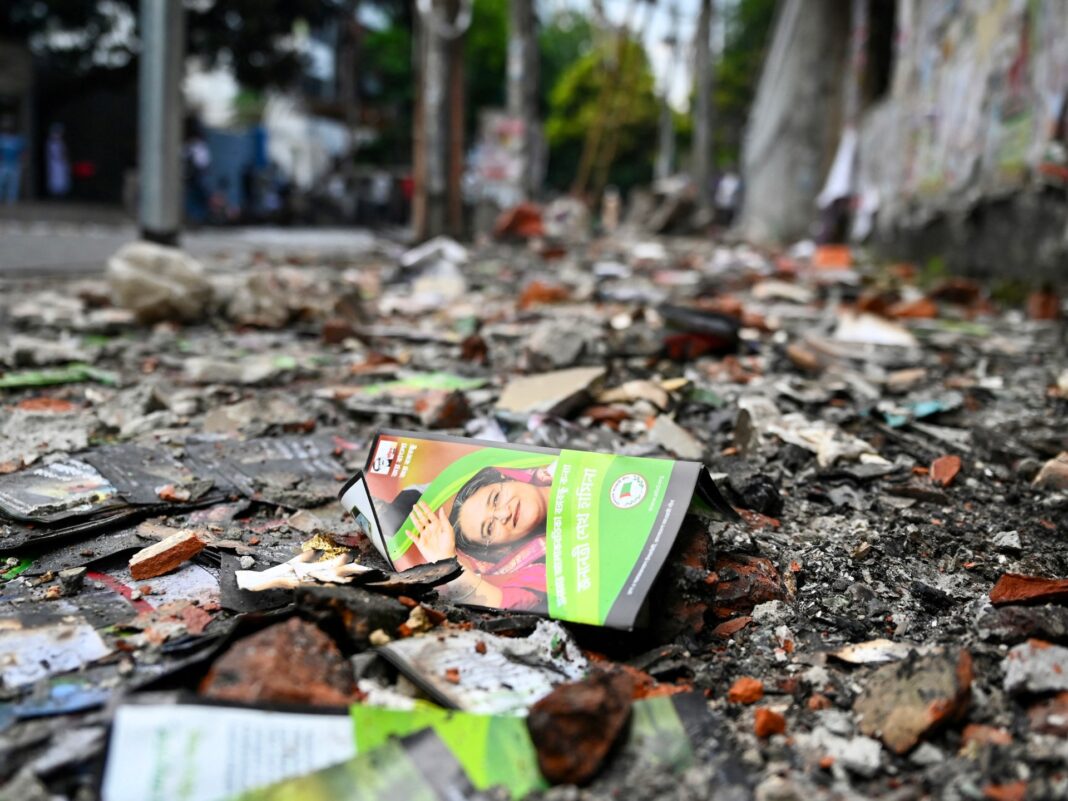Hopes that interim government under Muhammad Yunus can restore stability and address country’s inequalities.
The student protests that have rocked Bangladesh since July 1 and led Prime Minister Sheikh Hasina to flee in the middle of the night in a helicopter to New Delhi have battered the domestic economy, with losses estimated at billions of dollars.
Now, even as Nobel Laureate Muhammad Yunus prepares to guide an interim government in Dhaka, businesses are struggling with the unprecedented nature of recent events and what comes next.
“Very few expected the situation to turn the way it had,” Vina Nadjibulla, vice president of research and strategy at the Asia Pacific Foundation of Canada, told Al Jazeera, referring to the dozens killed and injured earlier this week and Hasina’s departure.
“Bangladesh has had many coups, but this is new – this people power, the sheer power of the demonstrators. Now we’re in uncharted territory.”
This level of political turmoil will have economic ramifications, Nadjibulla said.
Even before the events of last weekend and the bloodshed, Zaved Akhtar, president of the Foreign Investors Chamber of Commerce and Industry (FICCI), was reported saying that the Bangladeshi economy had suffered losses of $10bn due to the student protests and the curfews and communication blackouts.
On Wednesday, the Reuters news agency reported that some garment factories, a key employer and revenue generator for the South Asian nation, had reopened after four days of closure. At the same time, there are concerns of damage to trade as at least one Indian clothing producer in Bangladesh said it was diverting its production to India for the rest of the year, Reuters said.
“Those that were looking at Bangladesh as an attractive China+1 strategy … this political instability puts a question mark around it and makes it more urgent to restore law and order so that supply chains don’t get further impacted,” said Nadjibulla, referring to efforts by global businesses to diversify supply chains from China in the wake of ongoing tensions between Beijing and Washington, DC.
While the immediate goal of the interim government should be to restore law and order, it will eventually have to come up with a plan to address the stresses in the economy that were driving the protests, said Michael Kugelman, director of the South Asia Institute at the Wilson Center.
About 67 percent of Bangladesh’s 170 million people are aged 15-64, and more than a quarter are aged between 15 and 29, according to the International Labour Organization. The country has made impressive advances on the back of economic growth of an average of 6.25 percent annually over the last two decades. But there is still significant inequality and poverty in the country with about 40 percent of Bangladeshis aged 15-24 not working, studying or training last year.
“If those in charge are serious about addressing the economic stress, they’ve got to restore law and order as soon as possible. The last few weeks have been a nightmare scenario in terms of optics and will drive investors away … You have to make current investors safe so they don’t pull out,” Kugelman told Al Jazeera.
‘Watch and wait’
Bangladesh is a key economic player not only as a garment manufacturer for many Western countries but also as an energy importer and one that has big infrastructure investments from countries including China and Japan.
In 2023, for instance, it imported goods – mostly commodities like refined petroleum, cotton, fabric and fertilisers – worth $73bn, according to the CIA World Factbook.
“I hope the new government has people who make the connection between restoring peace and stabilising the economy,” said Kugelman. “Uncertainty is something that can make commercial partners and investors even more uncomfortable. One thing Bangladesh’s economic partners don’t want is more unrest. But at the end of the day, all that these economic partners can do is watch and wait nervously,” he pointed out.
India is one of the countries that is most likely to be affected by Bangladesh’s current unrest not only because of its historical relationship – it helped what was then East Pakistan gain freedom from West Pakistan – but also because Prime Minister Narendra Modi has been a staunch ally of Hasina.
“There could be heightened risks to Indian companies, but it comes back to the law and order situation and if the new government can reign that in,” said Kugelman.







